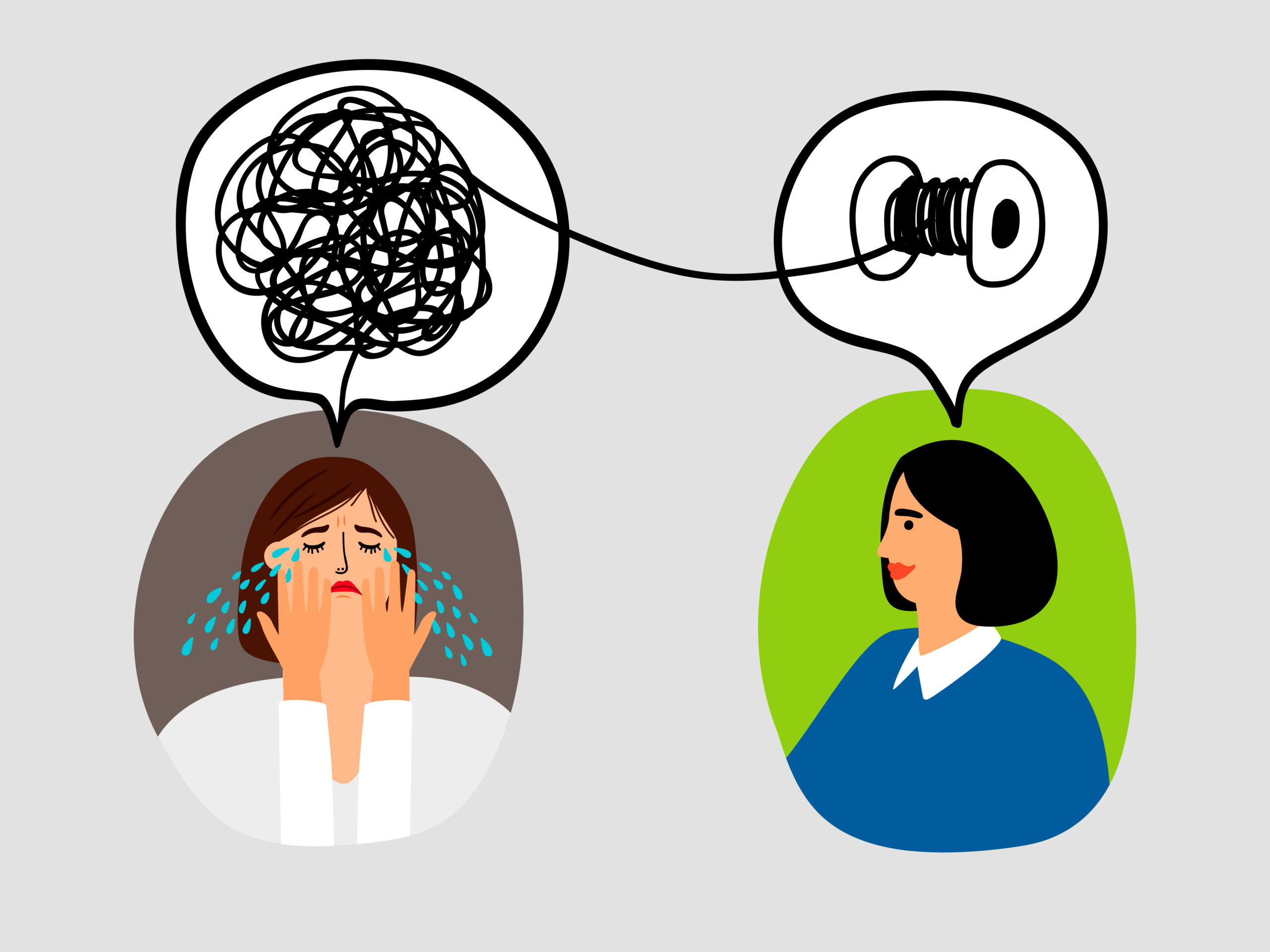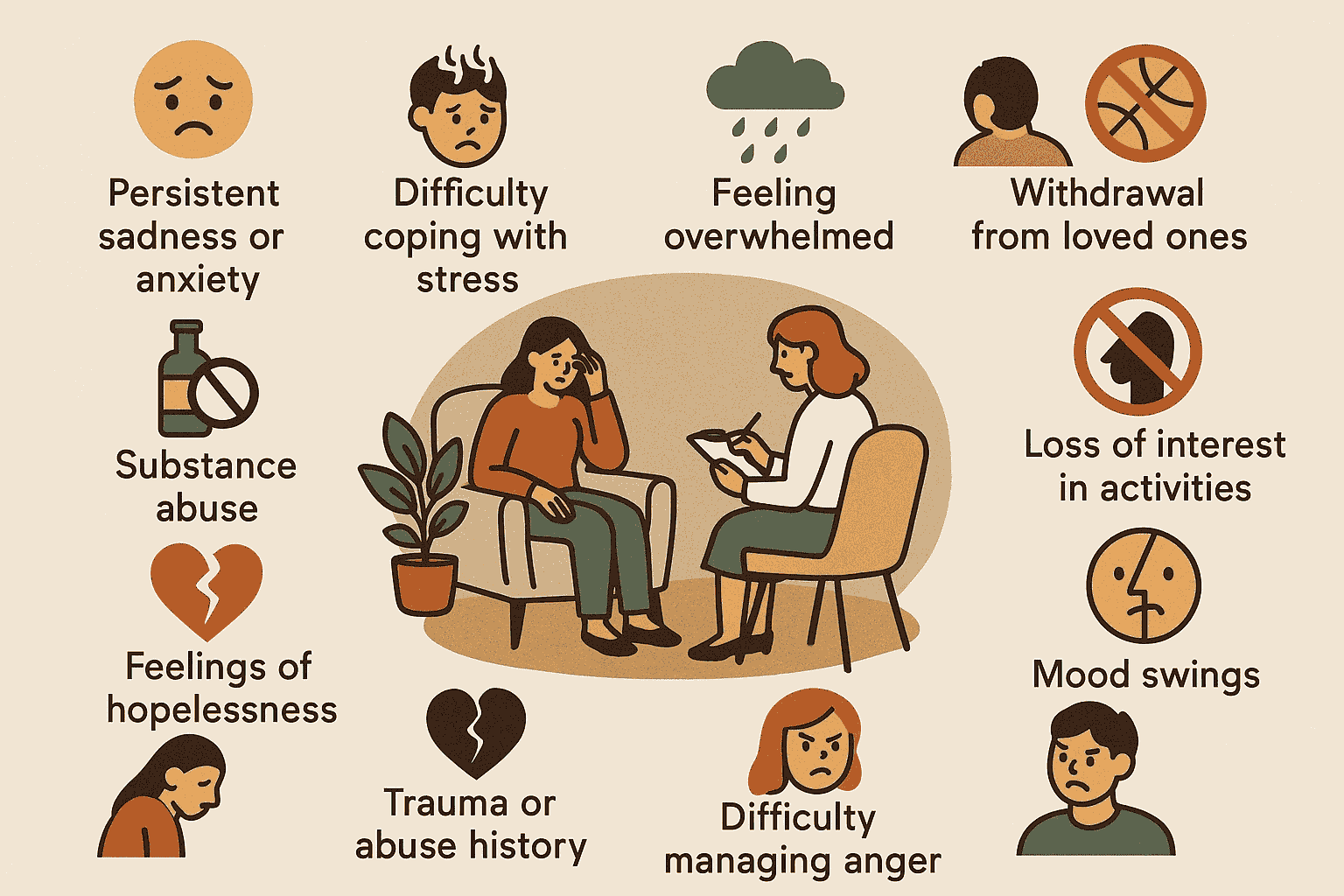Top methods Individual Counselling Services build confidence and coping skills in teens
Checking out the Benefits of Mental Therapy for Adolescent Well-Being and Development
Psychological therapy plays a crucial duty in the health and development of young adults. Teenage years is a troubled period noted by social and psychological challenges. Treatment uses a structured atmosphere for teenagers to verbalize their feelings and confront their battles. It outfits them with vital devices for resilience and interaction. As they navigate this developing phase, the impact of treatment can be profound. What certain benefits can arise from such assistance throughout these developmental years?

Recognizing the Adolescent Mind: Challenges and Stress
As teenagers browse the complexities of their developmental phase, they face many obstacles and pressures that can significantly influence their psychological health. This period is noted by significant physical, emotional, and social changes, which can induce sensations of complication and uncertainty. Peer impact escalates, typically leading to a battle for acceptance and identification. Academic expectations can develop extra stress and anxiety, as the pressure to excel mounts in an increasingly competitive environment.
The introduction of social media introduces a new layer of intricacy, where comparisons to curated online characters can intensify sensations of inadequacy and stress and anxiety. These factors can cause psychological distress, consisting of anxiousness, depression, and reduced self-esteem. Comprehending these challenges is crucial for parents, instructors, and mental wellness specialists, as it supplies understanding right into the teenage experience and highlights the demand for encouraging interventions to promote durability and well-being throughout this vital developmental phase.
Creating a Safe Room for Expression
Developing a secure area for expression is crucial for teens navigating their turbulent developing phase. In restorative setups, this setting cultivates open dialogue, enabling teens to communicate their feelings without fear of judgment. Such areas allow them to discover their ideas and emotions, which is essential for recognizing their identities and experiences.
When teens feel secure, they are more probable to share their battles, consisting of anxiety, clinical depression, or interpersonal disputes. This open interaction can cause deeper understandings and assist in individual growth.
A safe room urges imagination and self-reflection, giving teenagers the flexibility to reveal themselves with various outlets, such as art or writing. Developing count on in between the specialist and the teen is crucial, as it underpins the effectiveness of the healing procedure. Eventually, developing a risk-free space for expression acts as a foundation for emotional healing and individual growth throughout these developmental years.
Developing Coping Strategies and Resilience

Therapists commonly present methods such as mindfulness, journaling, and analytic abilities, allowing teenagers to handle their responses better. Additionally, by participating in role-play situations, they exercise how to take care of tight spots, enhancing their self-confidence. In time, these abilities foster a sense of agency, outfitting young adults with the tools to browse life's unpredictabilities. The advancement of durability not just help in getting over instant challenges yet likewise prepares for healthier emotional responses in adulthood, ultimately contributing to long-lasting health.
Enhancing Communication Abilities
Effective interaction skills are crucial for teenagers as they browse complicated social landscapes. Psychological treatment plays an important role in boosting these abilities, permitting adolescents to reveal their ideas and emotions more plainly. Through led sessions, specialists motivate teens to verbalize their sensations, helping with much better understanding in peer interactions and family characteristics.
Treatment gives a safe space for exercising active listening, empathy, and assertiveness. These skills equip teenagers to participate in significant conversations, resolve conflicts, and construct more powerful relationships. As they discover to connect properly, they additionally acquire confidence in their capacity to support for themselves and their demands.
Furthermore, improved interaction abilities add to emotional knowledge, enabling teenagers to respond and recognize to the feelings of others. This all natural growth promotes a supportive atmosphere, eventually promoting general wellness and social assimilation. Via psychological treatment, teenagers can grow these necessary abilities for a healthier social experience.
Cultivating Individual Development and Self-Discovery
Cultivating personal development and self-discovery in young adults involves a multifaceted strategy that urges understanding of individuality. This procedure likewise highlights the significance of building resilience abilities and boosting psychological awareness. Together, these elements develop a structure for much healthier, more certain individuals as they navigate their formative years.
Understanding Individual Identity
Exactly how do young adults browse the facility landscape of individuality as they strive for self-discovery and growth? Throughout this formative period, they come to grips with different influences, consisting of peers, household, and societal assumptions. Psychological treatment can function as a necessary tool, offering a secure space for expedition and reflection. Through led discussions, teens can articulate their sensations and thoughts, permitting them to understand their worths, needs, and ideas. This process fosters a much deeper awareness of their unique identity, encouraging them to make educated selections and create a feeling of objective. As they participate in self-discovery, they find out to welcome their uniqueness and browse difficulties with better clearness, eventually boosting their total health and personal growth.
Structure Resilience Skills

Enhancing Psychological Understanding
Enhancing psychological recognition is essential for teens maneuvering the intricacies of teenage years, as it enables them to identify and comprehend their sensations more effectively. By participating in psychological therapy, adolescents find out to identify their emotional responses and the triggers behind them. This process cultivates individual development and self-discovery, allowing them to articulate their emotions and deal with challenges extra adeptly. As teens establish emotional recognition, they cultivate compassion, boost connections, and improve interaction skills. Furthermore, this increased understanding help in decision-making, assisting them browse public opinions and establish a feeling of identity. Ultimately, cultivating psychological recognition with therapy can result in much healthier coping mechanisms and a much more balanced emotion, essential for growing during these developmental years.
Building Healthy And Balanced Relationships and Support Solutions
While traversing the complexities of teenage years, constructing healthy connections and assistance systems is necessary for teens. These connections give psychological stability and a feeling of belonging, important throughout this developing phase. Positive connections with peers, family, and mentors can enhance self-esteem and resilience, allowing teens to navigate challenges much more successfully.
Psychological treatment plays an essential function in cultivating these connections by furnishing adolescents with communication and conflict-resolution skills. Via therapy, they learn to share their feelings, recognize various perspectives, and establish boundaries, which are essential for keeping healthy interactions.
Moreover, helpful networks urge teens to seek aid when needed, lowering seclusion and promoting psychological wellness. When teens really feel linked to their support group, they are extra likely to participate in constructive actions and make educated decisions. On the whole, the growing of healthy relationships and support systems contributes in advertising teenage health and personal development
Regularly Asked Questions
Exactly how Do I Locate a Certified Therapist for My Teen?
To find a certified therapist for a teen, one ought to look for suggestions from healthcare suppliers, research article source credentials on the internet, check testimonials, and ascertain the specialist focuses on adolescent concerns, fostering a helpful atmosphere for growth.
What Are the Expenses Related To Mental Therapy for Teenagers?
The expenses connected with mental therapy for teens differ extensively, usually ranging from $50 to $250 per session. Insurance policy protection, moving range fees, and neighborhood resources can affect price and access for family members looking for assistance.
How Frequently Should Teenagers Attend Therapy Procedure?
Young adults must ideally participate in treatment sessions once a week or biweekly, relying on private demands. Consistent sessions can promote a risk-free area for expression, while allowing specialists to keep an eye on development and adjust techniques successfully over time.
Can Therapy Work for All Teens?
Therapy can be reliable for several teens, yet private outcomes vary. Factors such as individual circumstances, visibility to the procedure, and the therapeutic approach utilized all influence its effectiveness for each teenage.
What Should Moms and dads Do Throughout Their Young adult's Therapy Process?
Parents should actively support their teenager's therapy procedure by maintaining open communication, appreciating confidentiality, participating in sessions if welcomed, and motivating their youngster's initiatives (Individual Teen Counselling). Comprehending and persistence are crucial as teenagers navigate their personal growth trip
Mental therapy plays a crucial function in the wellness and growth of teens. By involving in psychological treatment, teens find out to identify their psychological actions and the triggers behind them. Mental therapy plays a pivotal function in fostering these relationships by gearing up adolescents with communication and conflict-resolution skills. Teenagers must preferably go to therapy sessions once a week or biweekly, depending on find here specific needs. Parents ought to proactively sustain their young adult's therapy procedure by maintaining open interaction, valuing confidentiality, attending sessions if invited, and encouraging their kid's efforts.